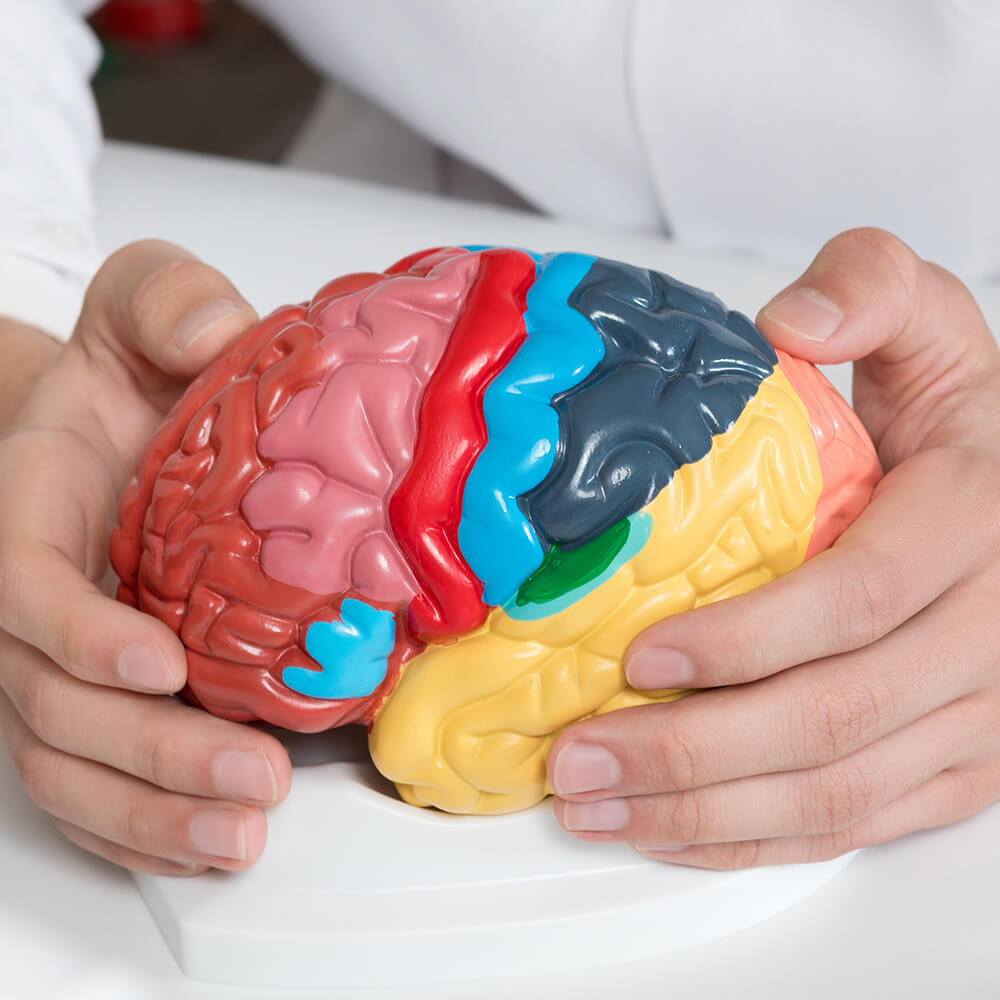Hearing Loss & Dementia
Extensive research shows that hearing loss can increase the risk of cognitive decline. Studies show that people with hearing loss can be twice as likely to experience cognitive decline.
Dementia is a term used to describe several medical conditions that impact memory, thinking, and the ability to perform everyday activities. This includes Lewy Body, Parkinson’s, Huntington’s, and vascular dementia. But the most common type of dementia is Alzheimer’s, accounting for up to 70% of the dementia that people live with today. The Alzheimer’s Association estimates that 6.2 million people in the U.S. experience Alzheimer’s. This is expected to more than double, reaching 12.7 million people by 2050.

Link Between Hearing Loss & Dementia
Substantial research highlights a correlation between hearing loss and cognitive decline. Brigham and Women’s Hospital and Harvard Medical School researchers conducted a significant study investigating this link. Researchers evaluated the hearing and cognitive capacities of over 10,000 people, ages 62 and older, for eight years. Researchers found that cognitive decline among those with hearing loss was:
- 30% higher among people with mild hearing loss
- 42% higher among people with moderate hearing loss
- 54% higher among people with severe hearing loss
These findings show that people with hearing loss were more than twice as likely to experience cognitive decline. This data supports extensive research showing a link between hearing loss and cognitive decline, increasing the risk of dementia.
Impact of Hearing Loss on the Brain
First, it’s essential to know that hearing doesn’t just happen in the ears but also involves the brain. The ears receive and send sound information to the brain, which processes those signals. Therefore, specific portions of the brain are responsible for speech and language comprehension.
- Cognitive overload: hearing loss involves the brain receiving less auditory information, forcing it to work harder to search for and process sound signals. The brain expends more resources and energy doing this, contributing to cognitive overload.
- Brain atrophy: due to receiving less information, areas of the brain can shrink. Becoming less active can cause a restructuring or changing neural networks and a loss of neurons.
- Reduced stimulation: social withdrawal is a significant effect of untreated hearing loss. This involves less time with others and practicing less in social activities and hobbies. Social withdrawal can also mean less stimulation and engagement for the brain.
These effects can contribute to cognitive decline, impacting brain health by contributing to the development of dementia.
Treating Hearing Loss Supports Brain Health
Fortunately, there are effective ways hearing loss is treated. Hearing aids offer a great hearing solution that also supports brain health. Studies show that hearing aids support cognitive functions and boost brain health, reducing the risk of cognitive decline. This includes the following studies:
- The University of Melbourne Study: researchers evaluated the hearing and cognitive capacities of nearly 100 people (ages 62-82) before and after using hearing aids. They found that:
-
- “97% of participants showed either clinically significant improvement or stability in executive function (mental ability to plan, organize information and initiate tasks)”.
- Study Published in the Journal of American Geriatrics Society: researchers performed memory tests on over 2,000 people and found that wearing hearing aids increased test scores.
